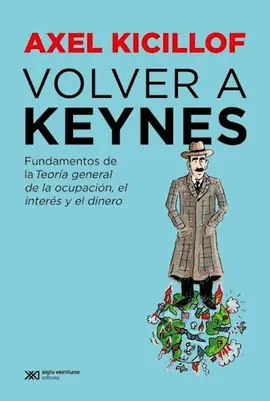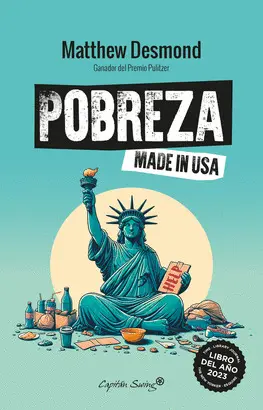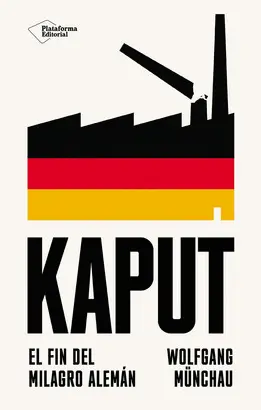- Editorial:
- PRENTICE HALL
- Materia:
- Economía
- ISBN:
- 978-0-13-222823-7
GEOGRAPHIES OF DEVELOPMENT
AN INTRODUCTION TO DEVELOPMENT STUDIES
ROBERT B. POTTER / TONY BINNS / JENNIFER A. ELLIOT
Geographies of Development: an Introduction to Development Studies remains a core, balanced and comprehensive introductory textbook for students of Development Studies, Development Geography and related fields. This clear and concise text encourages critical engagement by integrating theory alongside practice and related key topics throughout. It demonstrates informatively that ideas concerning development have been many and varied and highly contested - varying from time to time and from place to place.
With a new colour layout and in-chapter features such as Key Ideas, Boxed Case Studies and Summaries, students will find this an easy-to-use text which will focus them on the most important information in this area of study.
Table of Contents
List of boxes
ix
List of case studies
x
List of key ideas
xi
List of key thinkers
xii
List of critical reflections
xiii
Preface to the Third Edition xiv
Guided tour xvi
Acknowledgements xviii
Introduction xxv
Part I Conceptualising development: meanings of development
Questioning development
3 (44)
Introduction: from `development' to `anti-development'
3 (1)
The meaning of the word `development'
4 (2)
Thinking about development
6 (6)
Critiques of development: Eurocentrism, populist stances, anti-development and postmodernity
12 (10)
Spatialising development: the Third World/Developing World/Global South/ Poor Countries
22 (10)
Rich and poor worlds: relative poverty and inequalities at the global scale
32 (12)
Concluding issues: geography, development and `distant others'
44 (1)
Key points
45 (1)
Further reading
45 (1)
Websites
46 (1)
Discussion topics
46 (1)
Understanding colonialism
47 (32)
Introduction: colonialism and imperialism
47 (9)
Phases of colonialism
56 (15)
Legacies of colonialism
71 (6)
Key points
77 (1)
Further reading
78 (1)
Websites
78 (1)
Discussion topics
78 (1)
Theories and strategies of development
79 (48)
Introduction
79 (1)
Theories, strategies and ideologies of development
80 (3)
Classical-traditional approaches: early views from the developed world
83 (13)
Historical approaches: empirical perspectives on change and development
96 (10)
Radical dependency approaches: the Third World answers back?
106 (8)
Alternative, bottom-up and participatory approaches: perspectives on `another' development
114 (7)
Development theory, modernity and postmodernity
121 (5)
Key points
126 (1)
Further reading
126 (1)
Websites
126 (1)
Discussion topics
126 (1)
Globalisation, development and underdevelopment
127 (56)
Defining globalisation
128 (1)
Globalisation and development: `for and against'/`solution or problem'?
128 (5)
Global transformations: a shrinking world or a more unequal world?
133 (7)
Globalisation and the information society: the digital divide and an unequal world
140 (5)
Economic aspects of globalisation: industrialisation, TNCs, world cities and global shifts
145 (15)
Economic change and global divergence
160 (1)
Global convergence: perspectives on cultural globalisation
160 (4)
Global convergence and divergence: patterns of hierarchic and non-hierarchic change - a summary
164 (2)
Political aspects of globalisation: the anti-globalisation and anti-capitalist movements
166 (12)
Concluding comments: globalisation and unequal development
178 (2)
Key points
180 (1)
Further reading
180 (1)
Websites
180 (1)
Discussion topics
180 (3)
Part II Development in practice: components of development
People in the development process
183 (46)
Introduction: putting people at the centre of development
183 (1)
Population and resources: a demographic time bomb?
184 (2)
Where do the world's people live?
186 (2)
Counting the people
188 (1)
Population change
188 (4)
Understanding population statistics
192 (1)
The demographic transition
192 (2)
Population policies
194 (2)
Population structure
196 (2)
Ageing populations
198 (4)
Quality of life
202 (23)
Conclusion
225 (1)
Key points
226 (1)
Further reading
226 (1)
Websites
227 (1)
Discussion topics
227 (2)
Resources and the environment
229 (46)
Introduction: the search for sustainable development
229 (2)
Resources and development
231 (3)
Water resources in development: where will new sources come from?
234 (5)
Energy resource developments: the search for equity and efficiency
239 (3)
Mineral resources: curse or cure for development?
242 (2)
Resource constraints and the development process
244 (5)
Environmental impacts of development
249 (23)
Conclusion: towards sustainable resource management
272 (1)
Key points
273 (1)
Further reading
273 (1)
Websites
274 (1)
Discussion topics
274 (1)
Institutions of development
275 (52)
Introduction
275 (3)
The rise of global governance
278 (34)
The role of the state
312 (4)
Civil society, NGOs and development
316 (6)
Conclusion
322 (1)
Key points
323 (1)
Further reading
324 (1)
Websites
324 (1)
Discussion topics
324 (3)
Part III Spaces of development: places and development
Movements and flows
327 (54)
Introduction: unravelling complexities
328 (1)
Movements and flows in the `real world': growing coffee for export
328 (3)
People on the move
331 (13)
Communications and transport
344 (2)
North and South: an interdependent world
346 (5)
World trade: the changing scene
351 (18)
Developing countries and the debt crisis
369 (8)
Conclusion
377 (1)
Key points
378 (1)
Further reading
378 (1)
Websites
378 (1)
Discussion topics
379 (2)
Urban spaces
381 (62)
Urbanisation and development: an overview
382 (2)
Urbanisation in the contemporary developing world
384 (7)
Causes and consequences of rapid urbanisation in the Third World
391 (4)
City systems and development: questions of urban primacy, regional inequalities and unequal development
395 (5)
Urban and regional planning in Third World countries
400 (5)
Rural-urban interrelations in developing countries
405 (10)
Inside Third World cities
415 (24)
Final comments: urban management for sustainable urbanisation
439 (2)
Key points
441 (1)
Further reading
441 (1)
Websites
441 (1)
Discussion topics
441 (2)
Rural spaces
443 (48)
Introduction
443 (1)
Rural spaces in development thinking
444 (1)
`Old' and `new' challenges in rural development
445 (5)
Agrarian structures and landholding in rural areas
450 (6)
Livelihood systems in rural areas
456 (16)
Approaches to agricultural and rural development
472 (11)
A new paradigm in rural development?
483 (5)
Conclusion
488 (1)
Key points
489 (1)
Further reading
489 (1)
Websites
490 (1)
Discussion topics
490 (1)
Conclusion 491 (4)
Bibliography 495 (40)
Index 535








